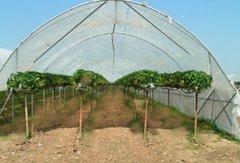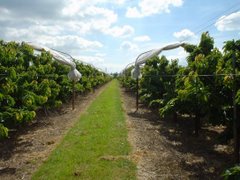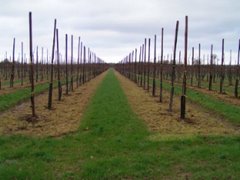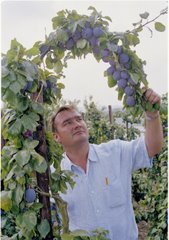
15 June 2006
Mansfields are dedicated to seek ways to reducing environmental risks and reliance on pesticides. One of our aims is to reduce pesticide use and minimise residues by following the principles of Integrated Crop Management (ICM). ICM is a cropping strategy in which growers aim to conserve and enhance the environment whilst producing safe and wholesome food commercially.
Integrated Pest Management (IPM) is a part of ICM and involves developing pest control strategies based on environmental control, biocontrol and the use of physical and chemical control agents. Much work has been done by Mansfields to keep the residues to a minimum and now we have conducted a residue free trial in one of our orchards growing Cox, Gala and Russet.

We are aiming to achieve residue free fruit by using the following methods:
1. Autumn applications in combination with a good husbandry like mowing or pulverising after leaf fall to facilitate rapid breakdown of leaves and other orchard litter- this should provide a good control of over-wintering pests and diseases
2. Scab and mildew programme through to petal fall, then reliance on organic compounds
3. Crop monitoring and timed insecticides- we are using pheromone traps to monitor the flight of Codling, Summer Fruit Tortrix and Fruit Tree Tortrix moths, to determine when the threshold for spraying is reached

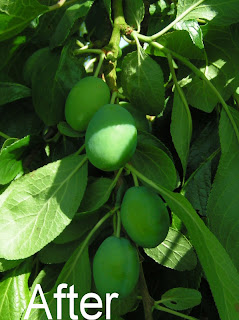 One of the commonly used tree management practices is thinning of the fruit. The general purpose of the thinning is to improve fruit size and quality- the removal of fruit allows for the elimination of small, damaged and malformed fruits. In some instances fruit thinning aids the prevention of irregular cropping year on year. The amount of fruit removed off the trees depends on the season and the crop load but in some cases it can be up to 50% on plums and 30% apples . This will reduce the overall crop load and obtain the highest quality and volume of marketable fruit produced within the optimum size profile.
One of the commonly used tree management practices is thinning of the fruit. The general purpose of the thinning is to improve fruit size and quality- the removal of fruit allows for the elimination of small, damaged and malformed fruits. In some instances fruit thinning aids the prevention of irregular cropping year on year. The amount of fruit removed off the trees depends on the season and the crop load but in some cases it can be up to 50% on plums and 30% apples . This will reduce the overall crop load and obtain the highest quality and volume of marketable fruit produced within the optimum size profile.












